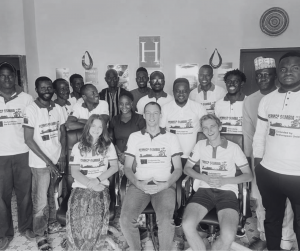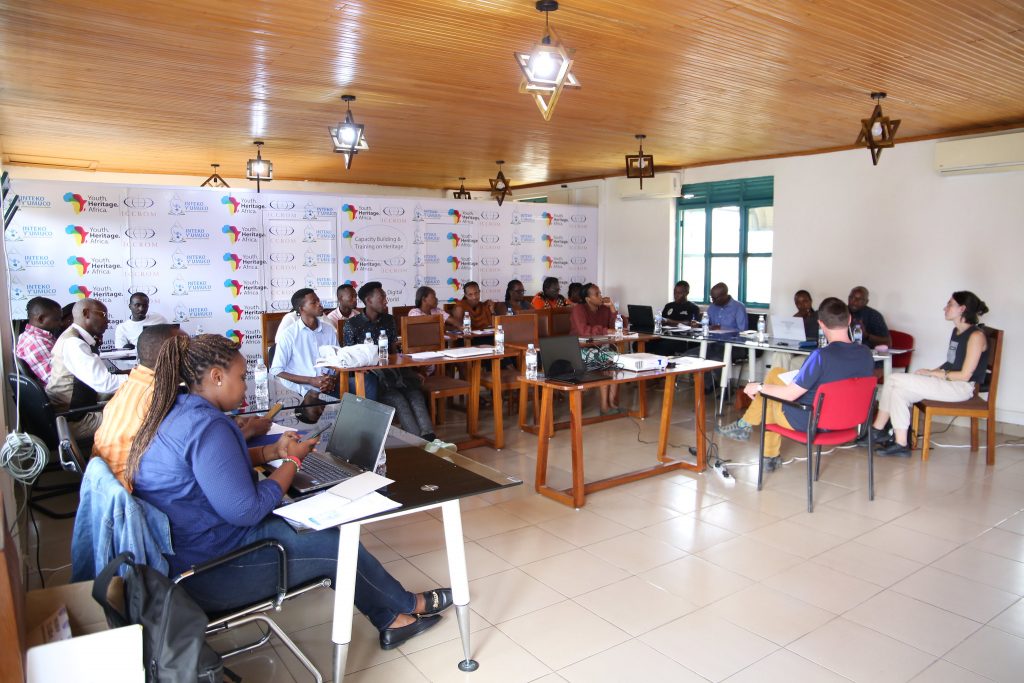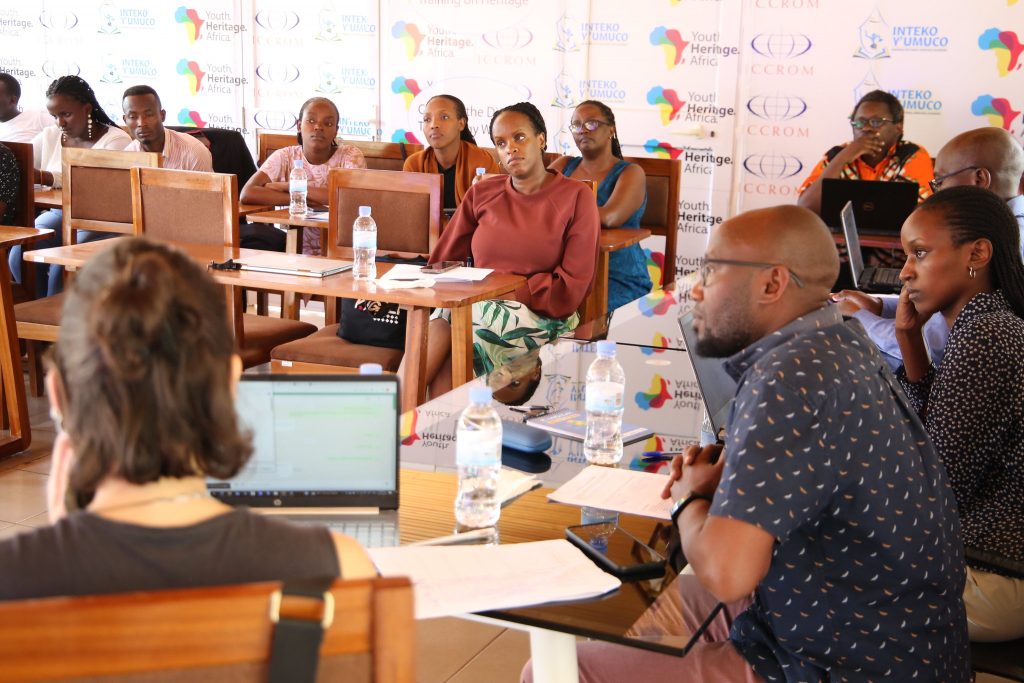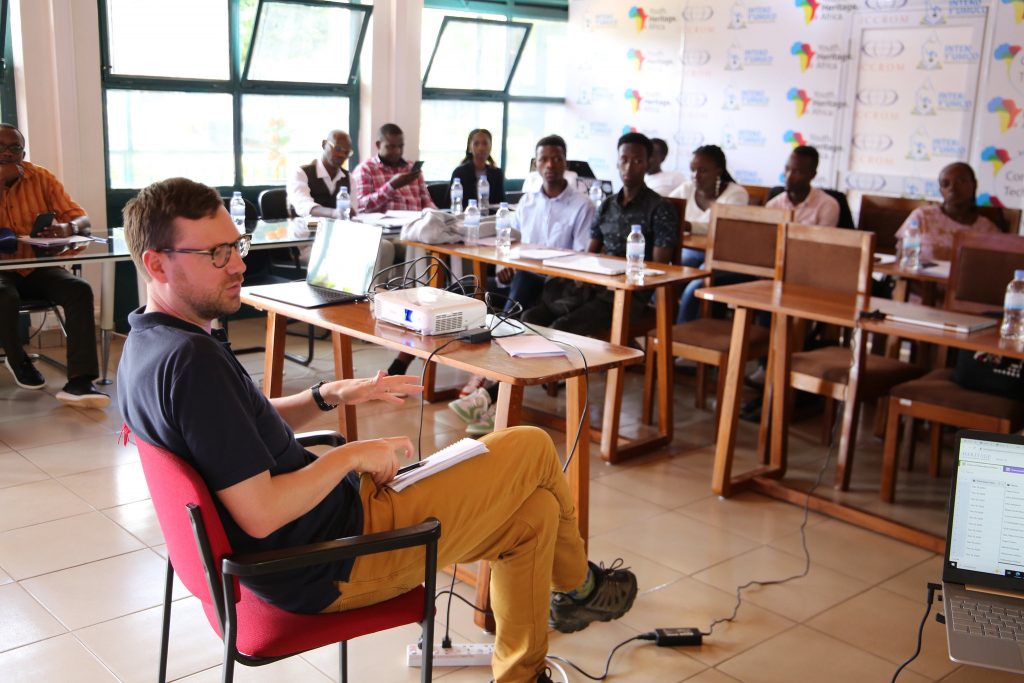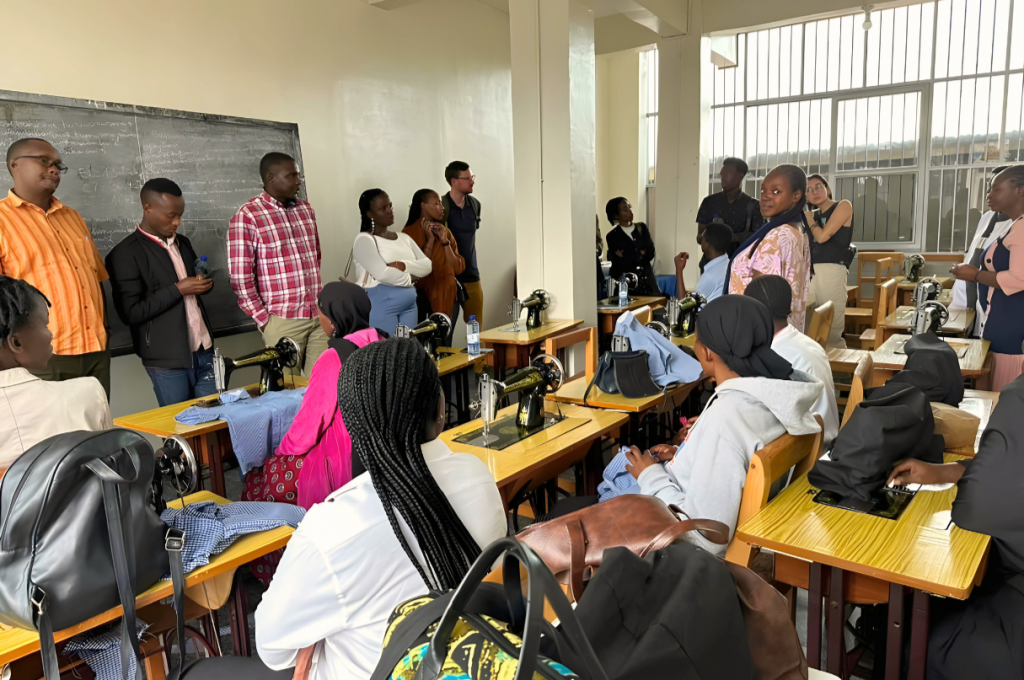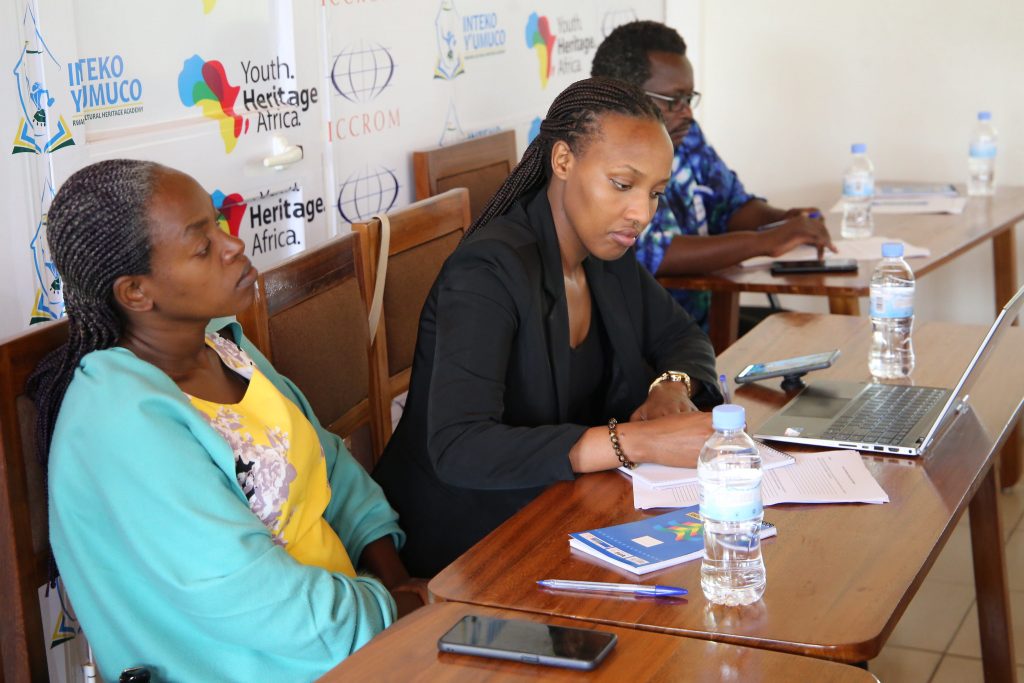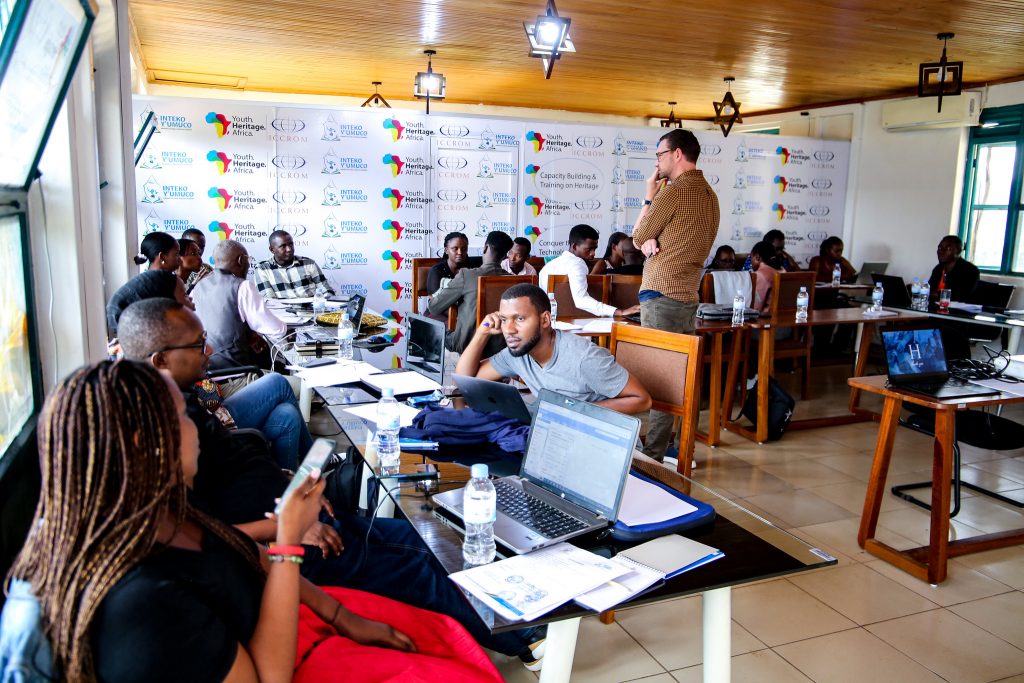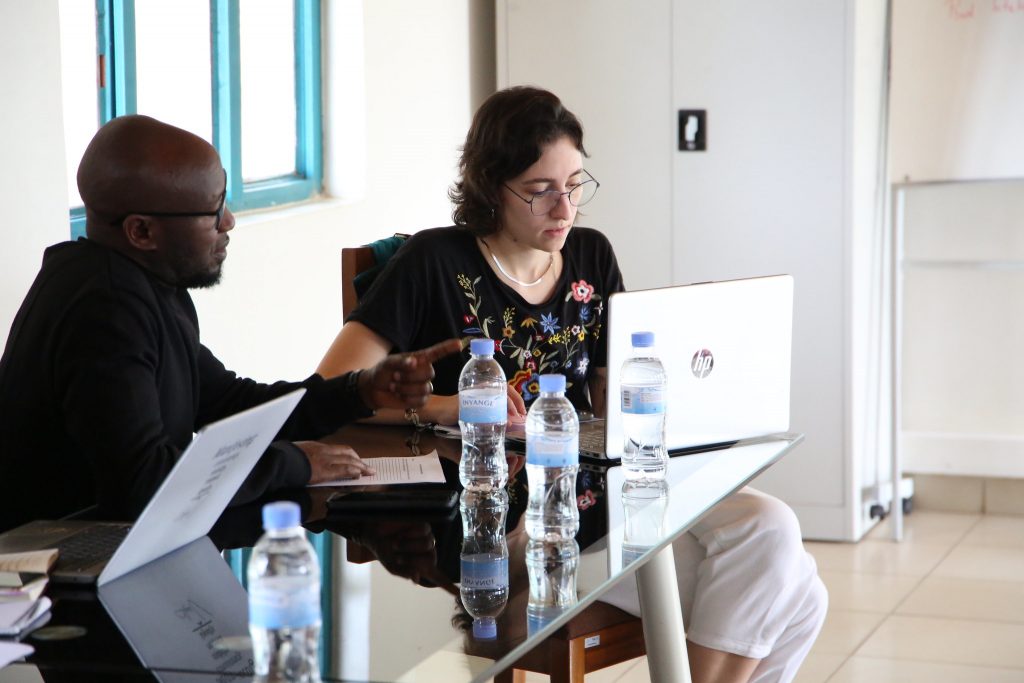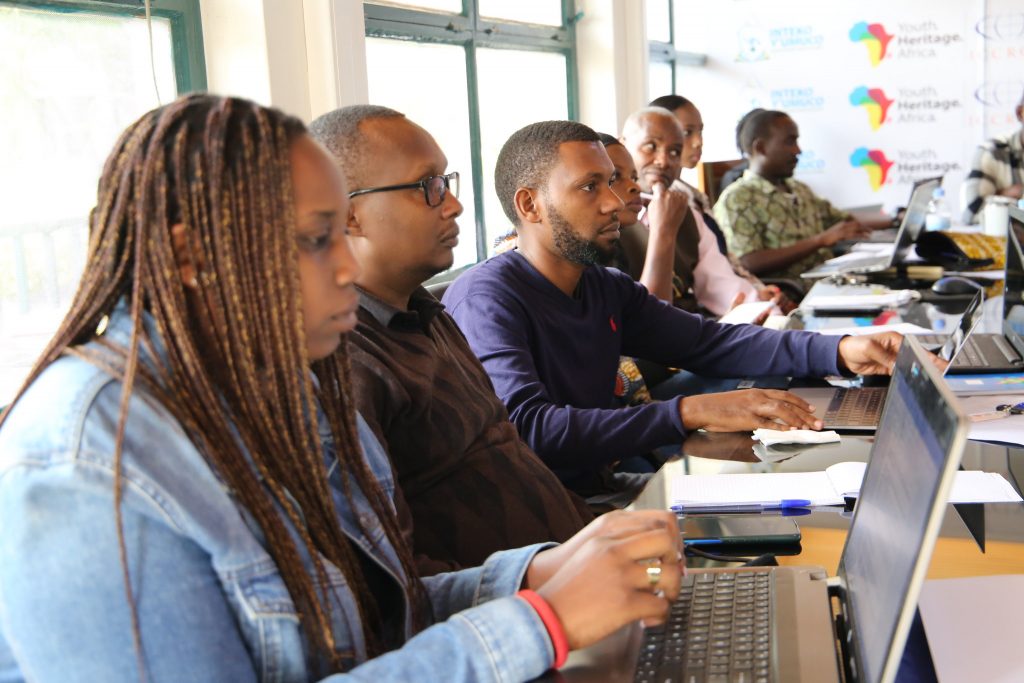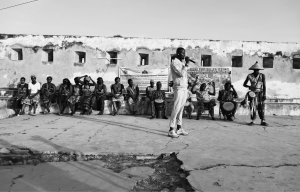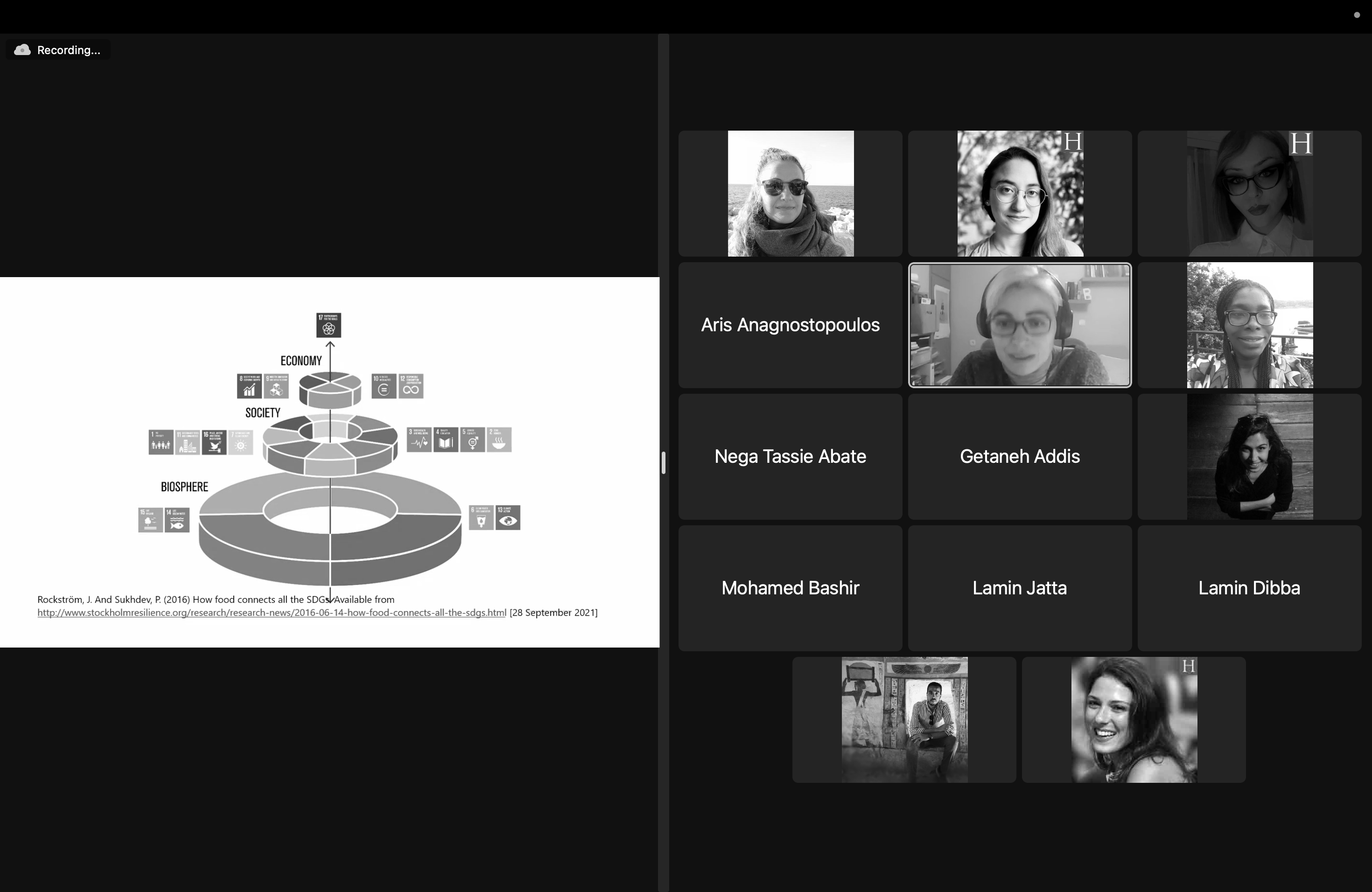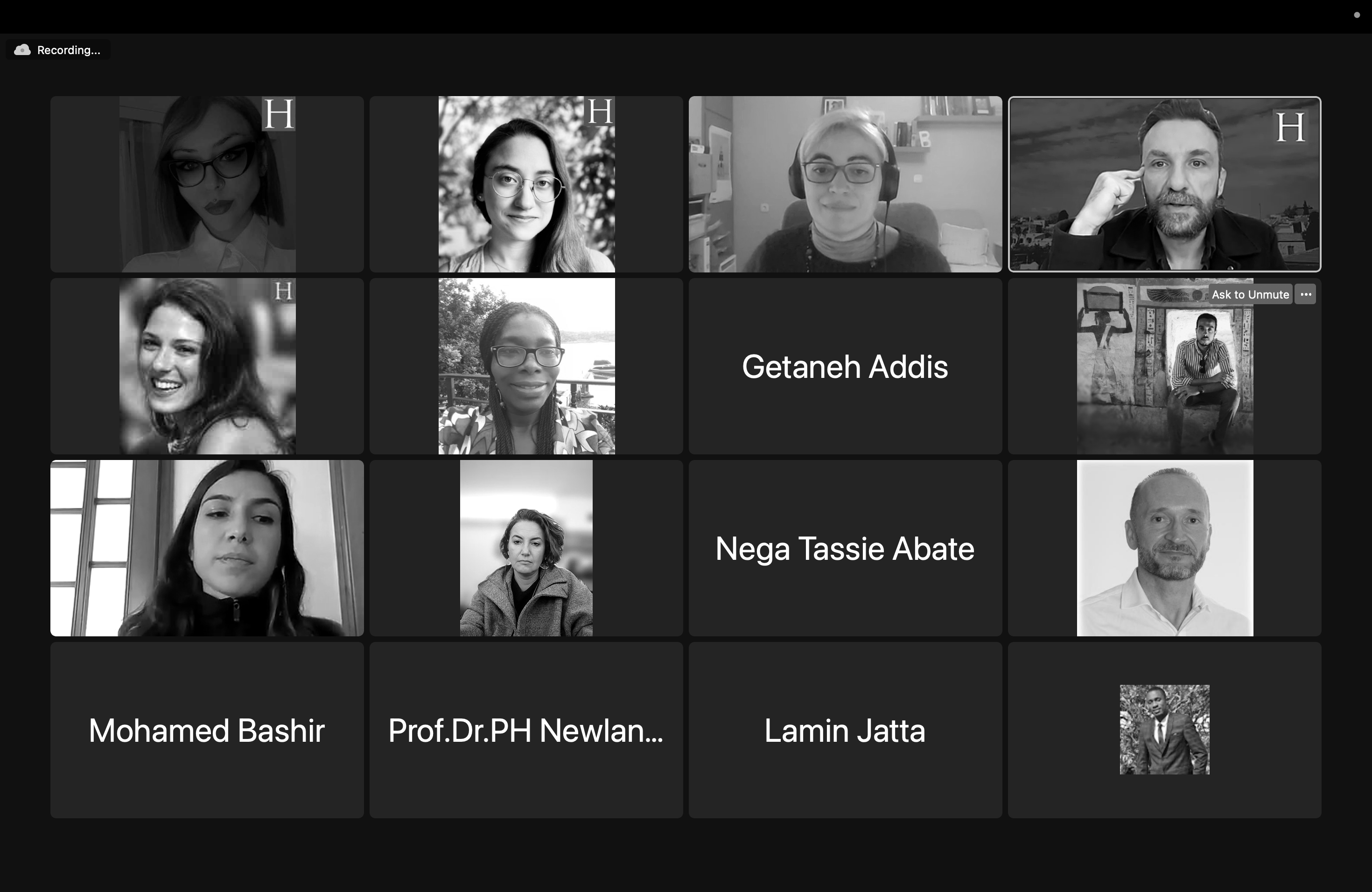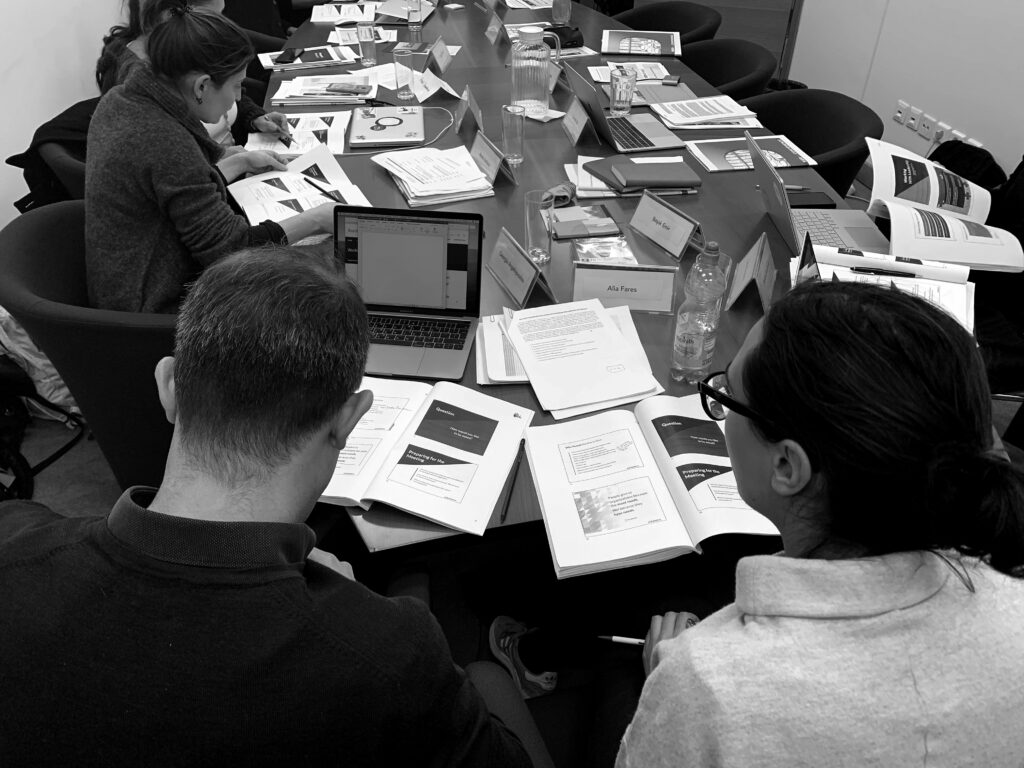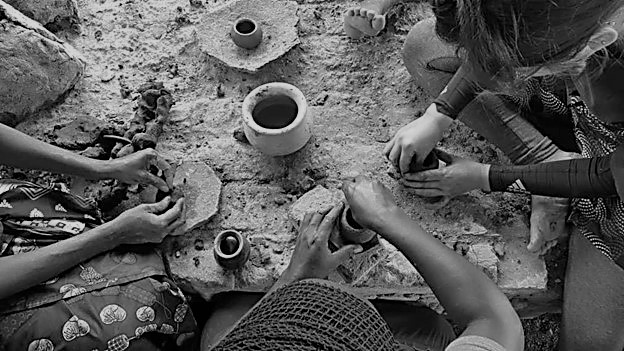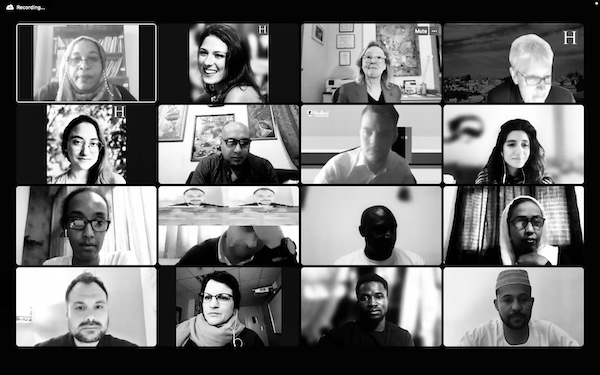Tag Archives: workshop
Digitizing Gambia’s Heritage: A workshop in Digital Tools for Cultural Heritage
HERITΛGE is pleased to announce the successful completion of a transformative workshop that trained heritage caretakers in The Gambia on the latest digital tools for cultural heritage management. Our “Digital Tools for Heritage Management” workshop took place in Barra, Gambia, from December 12th to 18th, 2023. It is part of the HerMaP Gambia program, co-funded by the European Union and implemented by HERITΛGE.
Led by HERITΛGE’s and HOGENT University’s Dr. Cornelis Stal, the week-long event was attended by 14 representatives from various leading heritage institutions in the country, including the National Center for Arts and Culture (NCAC), the National Environment Agency (NEA), ITTOG (The Institute of Tourism and Travel of The Gambia), the Gambia Youth Chamber of Commerce (GYCC), the Juffureh & Albreda Youth Society (JAYS), CityWide Ventures International, and community members from Barra.
“I am genuinely delighted by the wholehearted enthusiasm with which the participants immersed themselves in this innovative workshop,” said Mina Morou, Africa Programs Manager at HERITΛGE and Project Manager for HerMaP Gambia. “The culmination of the participants’ efforts resulted in the impressive 3D modeling of two significant heritage sites, Fort Bullen and Kuntah Kinteh Island, a testament to the success of the workshop in translating theoretical concepts into practical and valuable outcomes.”
Dr. Stal, assisted by two students from HOGENT University, laid the foundation for an enriching learning experience. Participants were introduced to a broad range of 3D recording and mapping techniques, as well as methodologies to use and analyze spatial data. Geographic Information Systems were utilized to acquire, manage, and integrate spatial data for management and analysis purposes, and to publish the resulting data in cartographic deliverables for Fort Bullen and Kuntah Kinteh Island. The video forms part of the 3D modeling of Fort Bullen.
The initial three days focused on GIS fundamentals, 3D recording, and mapping techniques. The subsequent three days delved into theoretical training in photogrammetry, image-based 3D modeling, camera models, optics, and data processing. Following this, participants applied their knowledge practically to heritage sites.
“Many thanks to The Heritage Management Organization and HerMaP Gambia for bringing digital technology to Gambian heritage,” said Hassoum Ceesay, Director General of NCAC.
Empowering Communities: Innovative Workshops on Community and Economic Development in Rwanda
HERITAGE’s Dr Paul Burtenshaw, an expert in heritage economics, heritage tourism and how cultural heritage supports sustainable and community development, conducted two workshops on Community and Economic Development in Rwanda last month, from the 13 th -15 th and the 16 th -18 th November. The workshops are part of our HerMaP Africa initiative, kindly supported by the Mellon Foundation’s Humanities in Place program. They were produced by HERITΛGE’s Rwanda programs Manager, Eirini Oikonomidi.
The first workshop (13 th – 15 th November) bought together 26 heritage and tourism practitioners in a venue provided by RCHA (Rwanda Cultural Heritage Academy) in Kigali: the Kandt House Museum. Half the participants were from the RCHA and the other half from the RCTA (Rwanda Community Tourism Association). The building itself was an early 20 th century German colonial administrative centre but has since been renovated (2004) and houses a museum of Natural History as well as an exhibition (since 2017) detailing the history of Rwanda before and after German colonisation.
The second workshop (16 th -18 th November) was conducted at Red Rocks cultural centre in Musanze district in the Northern Provenances. It trained 13 members of the RCTA, most of whom aged under 30 years old.
This is the first year HERITΛGE is offering the Community and Economic development workshop in person and online. The workshop has three main objectives:
- To provide the attendees with a firm understanding of the motivations for mobilizing cultural resources for economic benefit. At the same time acknowledging the limits of that mobilisation and how economic impacts are measured and communicated.
- To help attendees develop a plan for economic benefits: focussing on selecting strategies, setting goals and making judgement calls.
- Enabling attendees to implement a complete economic development strategy in their own locations.
On one day of the Kigali workshop, the participants visited the NWC (the Nyamirambo Women Centre) which was a great insight into the work of a local community-focused NGO. The NWC works to promote and empower women through capacity development and employment. At the moment the NWC employs 50 women as seamstresses in a self-sustaining project in which profits are used to fund further initiatives. At the Musanze workshop our hosts, Red Rocks, also engage with promoting the heritage and economies of local communities. It was a valuable experience to see how they worked.
All in all, both workshops were extremely enjoyable, and we look forward to seeing how all 39 participants now come to incorporate their new skills and knowledge into local projects.
Bridging Heritage and Climate Action: New Workshop creates a generation of ambassadors
We are happy to announce the completion of our very first Interpreting Heritage and Engaging Communities for Climate Change workshop, an important milestone in the sector’s efforts to address this pressing issue.
During this exciting inaugural 3-day online workshop (1st– 3rd December) HERITΛGE bought together 13 Heritage Managers from Africa (Egypt, Eritrea, Ethiopia, Ghana, Nigeria, Sudan, Zimbabwe, The Gambia), Europe and Asia (France, Turkey) that are now trained to fulfil the role of heritage and climate action ambassadors.
The sessions aimed to equip the participants with the necessary tools and expertise to actively involve local communities in climate action. It was a pleasure to see participants share their personal experiences, lead lively discussions, and actively engage in various exercises throughout a series of thought-provoking lectures by our instructors.
Key Learnings:
- Understanding Climate Change: as both a global phenomenon and its specific effects on local communities.
- Impacts on Cultural Heritage Sites: the focal point of the workshop was the exploration of the intersection between climate and heritage issues.
- Community Engagement: learning effective strategies to communicate the impact of climate change to diverse audiences, with a strong focus on fostering sustainability and resilience in heritage sights.
Much of the success of the workshop was down to the guidance of our four instructors. Valya Stergitoti acted as our interpretative trainer and planner. She has over twenty years’ experience in organising heritage workshops, maintains a high level of personability and individual focus in each project she curates, and we benefited enormously from her guidance and skills. Dr Aris Anagnostopoulos, who is currently engaged in research about archaeological ethnography (PhD University of Kent) and serves as HERITΛGE’S Community Engagement Programs’ Manager, brought vital insights to the community engagement side of the workshop. Dr. Lena Stefanou, whose expertise lies in archaeology and museum and heritage studies, suggested a diverse perspective to the workshop. Her work incorporates museum planning, educational design and community archaeology and she provided fascinating insights into all these matters and how climate issues might impact them.
Finally, our director Dr. Evangelos Kyriakidis took the stage as the keynote speaker in a lecture which emphasised the urgent need for local ambassadors of climate mitigation in our world today.
By the end of the workshop, the participant Heritage Managers came out with a deeper awareness of how interpretation can inspire communities to take climate action. Armed with this knowledge and expertise, these ambassadors of heritage and climate action are now better equipped to initiate influential initiatives within their communities, contributing to a more sustainable future. We look forward to seeing how their future work will lead to positive change!
Plan ahead, check out our upcoming training opportunities
HERITΛGE is happy to announce three upcoming training workshops for Heritage Professionals.
At HERITΛGE we train professionals in the management of heritage sites, independently of project specifics. We have trained more than 1000 individuals and organizations in over 77 countries and are now on course to impact a quarter of global heritage hotspots by 2025.
Our upcoming opportunities include:
Engaging Communities in Cultural Heritage – Online and In-Person
This course draws from our long experience with community engagement through heritage and will discuss several examples from our own and others’ work. At HERITΛGE aim to develop a distinct approach to community engagement, based on social (and art) research with community-led initiative.
Introduction to Heritage Interpretation for Site Managers – Online
Heritage Interpretation is a structured approach to non-formal learning, specialized in making visitors’ experience meaningful and unforgettable. In this 3-day course, participants will familiarize themselves with the principles of quality heritage interpretation and will practice how to use interpretation on their own sites.
Interpretive Writing for Natural and Cultural Heritage – Online
The key to effective word-based Heritage Interpretation is written text that grabs and holds the reader’s attention. During a 3-day online course, participants will discover and practice a wide range of techniques to engage visitors and master the techniques of interpretive writing.
*There is funding available through the Benefactor Scholarships of the Heritage Management Organizations. The scholarships are available for qualified candidates and cover a large part of the cost, excluding travel and hotel expenses for in-person training.
Launching a new Conservation Workshop!
HERITΛGE is happy to announce the launch of a new introductory conservation workshop, designed to equip heritage professionals with the skills and knowledge they need to extend the life of cultural heritage while enhancing the transmission of its messages and values.
Conservation is critical to preserving the physical and cultural characteristics of heritage objects, and ensuring their value is not diminished. Our new 3-day introductory course provides an overview of the principles and objectives of conservation, outlining its methodology, ethics, evolution, and contemporary international context.
“This course is an introduction to the principles of conservation and as such, it is a unique opportunity for our organization to place conservation at the heart of heritage management,” said HERITΛGE Director, Dr. Evangelos Kyriakidis.
Led by Alexis Stefanis, an Assistant Professor at the Department of Conservation of Antiquities and Works of Art of the University of West Attica, Greece, the HERITΛGE conservation workshop is a unique opportunity for heritage professionals to place conservation at the heart of heritage management.
By the end of the course, participants will have gained an understanding of the potential of conservation, and the processes necessary to maximize it. Funding opportunities are available for eligible participants.
Find out more about the workshop, funding opportunities, and the application process here.
Successful Fundraising for Heritage Managers: Strategies and Best Practices
On March 17-19, 2023, a three-day online workshop on “Successful Fundraising for Heritage Managers: Strategies and Best Practices” was held, aimed at equipping heritage managers with fundraising skills and strategies to start-up and build their organizations’ contributed revenue for increased impact in the world. The workshop had 13 participants from Africa (Egypt, Ethiopia, Kenya, Namibia, Sudan), Asia (India), and Europe (Greece, Norway, Serbia, United Kingdom), who were trained on fundraising best practices.
Throughout the workshop, participants learned the best practices on fundraising and how to apply them to create a case for support and a letter of inquiry for their own organization or project. The participants brought to the workshop various projects that they wanted to raise funds for.
These included:
• The Dye House at NMEC,Egypt
• Prosfygika Project, Squatted Monuments in the city center of Athens, Greece
• Creating a Cultural Trail for a Regeneration Site in East London, United Kingdom
• Restoration of Stepwells at Penukonda, India
• Documentation and protection of the abundant village of Old Dongola Sudan
• Identification, Documentation and Marketing of Intangible Cultural Heritage of Esna, Egypt
• City Tour Guide’s Capacity Building Training, Ethiopia
• Heritage Interpretation of Prehistoric Sites, Kenya
• SEE Heritage Network going strong, Serbia
• Systematic excavation, preservation, and documentation of the Meroitic townsite of Kedurma,
Sudan
• Traditional Farming in the Butana area, ethnoarchaeological study, Sudan
• Rundu Youth Academy of Arts, Namibia
• Fotefar mot nord – Trails to the north, Norway.
The workshop had both asynchronous and live sessions. During the asynchronous sessions, participants prepared for an assignment in advance and were updated with reading material and pre-recorded videos on the Moodle platform. In the live sessions, participants presented their assignments and received feedback from instructors. The live sessions were then followed by lectures from workshop instructors.
Participants were also given free access for one month to GrantStationhttps://grantstation.com/ to look for potential prospects for their project, thanks to GrantStation for kindly providing discounted access to participants. Through the workshop sessions, lectures, case studies, various discussions, and interactive exercises, participants were able to develop and apply strategies in fundraising fundamentals, best practices, ethics, working with executive and voluntary leadership, creating and articulating a compelling case for support prospect research, matching projects with sources of support, matching marketable projects with prospective sources of support, identifying, cultivating and soliciting prospects, personally asking for a contribution, securing foundation and corporate grants, writing a compelling letter of inquiry to an actual potential funder, creating a development plan.
On March 27, the participants had a follow-up tutorial, where they met with their instructors to ask questions and receive guidance on how to improve their final project, which is to write a letter of inquiry for their own project. The workshop was a success as the participants left equipped with the skills and strategies needed to fundraise for their various heritage projects.
Workshop Instructors:
Linda C. Hartley, is principal, H2Growth Strategies and former VP of External Affairs at The
Cooper Union for the Advancement of Science and Art. She taught as an adjunct professor for
12 years at the NYU Heyman Center for Philanthropy and Fundraising, and is co-author of the
book, Big Impact: Insights & Stories From America’s Non-Profit Leaders. Hartley holds an M.B.A.
in Management from the Stern School of Business at New York University.
Jennifer E. Herring, is special advisor, H2Growth Strategies, former President & CEO of the
Maritime Aquarium, and former Senior VP of Development of the Wildlife Conservation Society.
Herring currently serves as VP for Development of STEMteachers NYC. She holds an M.A. in
Liberal Studies from SUNY Stony Brook and a certificate in Strategic Perspectives in Nonprofit
Management from Harvard Business School.

